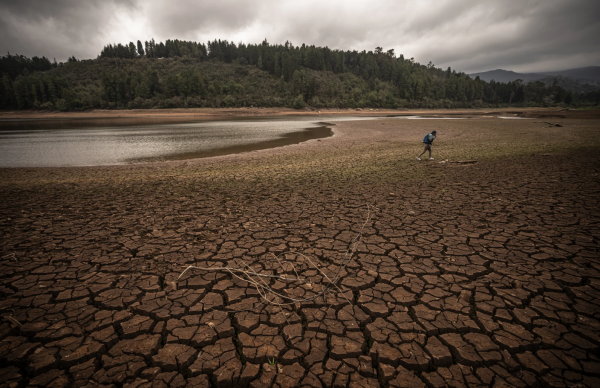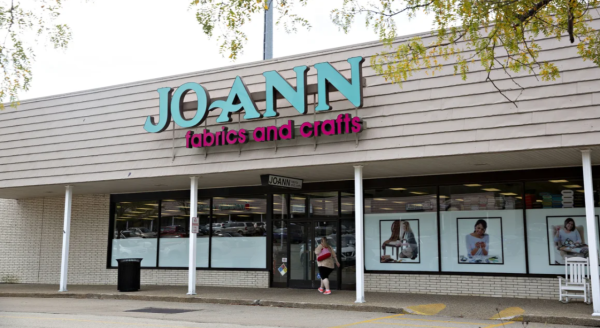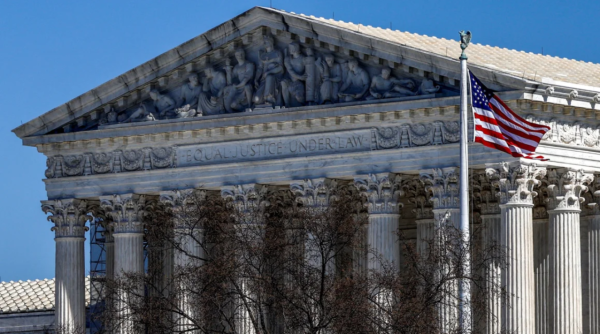Faculty combats climate survey results revealed in January
May 2, 2017
Susan Rankin, of Rankin and Associates, defines climate as “the current attitudes, behaviors, standards and practices of employees and students of an institution.” It is how students and faculty feel about their environment — whether they are comfortable with being themselves, whether they feel safe and whether they are happy while on campus.
The Climate Study had been in development for two years and was sent out to students on March 8, 2016. The Climate Survey Steering Committee (CSSC) is a collaboration of students, staff and faculty who were in charge of overseeing the climate survey. CSSC selected Rankin & Associates to conduct Kent State’s climate survey.
Run by Rankin, Rankin & Associates has conducted institutional climate studies in over 130 locations across the United States.
Kent State hasn’t done one in nearly 20 years, according to President Beverly Warren’s letter published on the Kent State website.
Kathryn Wilson co-chaired the Climate Study steering committee, along with Interim Vice President of Division of Student Affairs Shay Little.
“I very much think climate is important,” Wilson said. “As an institution, it’s been a very long time since Kent conducted a climate survey — not since the late 90s.
“One of the questions was ‘Do you feel valued by faculty?’ It was a question asked to the students. This is my passion. I want everyone to feel valued by faculty,” Wilson said.
According to Rankin & Associates, 17 percent of the 6,867 respondents from Kent State’s main campus, experienced exclusionary, intimidating, offensive or hostile conduct.
To Wilson, the results showing the climate towards disabled members of the community alarmed her the most. Of the Kent State campus students who responded, only 60 percent of students — 111 respondents — with multiple disabilities felt comfortable on campus. Compare this with 80 percent of students — 4,869 respondents — without disabilities who felt comfortable on campus.
Another area the university climate needed improvement with was the comfort level of faculty members. Tenured and tenure-track faculty seemed to have less favorable opinions towards Kent State than new or temporary faculty members. However, Wilson explained that this, like other issues shown with the university climate, may be a result of the study’s timing.
“Rankin & Associates emphasized this when they came and presented the results. What we’re doing is a snapshot of one point in time,” Wilson said.
The time in which they took the survey was shortly after a “pretty contentious contract negotiation with tenured and tenure-track faculty,” Wilson said.
Ken Ditlevson, director of the LGBTQ Student Center, was one of the planning members on the steering committee for the climate study. Ditlevson focused on the campus climate towards the LGBTQ community.
“For us — for the LGBTQ Student Center — it was really important because we’re kind of an invisible minority,” Ditlevson said. “When you enroll at Kent, when you attend at Kent, the university has no idea how many gay, lesbian or transgender students there are. It’s just not something that’s collected at this point.”
The Climate Study showed that of the 33 trans-spectrum respondents, 42 percent reported feeling “exclusionary, intimidating, offensive and/or hostile conduct.” Compare this with the 17 percent of women and 16 percent of men feeling this way.
One of the questions posed by the Climate Survey was if students felt they were experiencing exclusionary conduct. Wilson found that many of the students who felt excluded said that it was their fellow students exhibiting exclusionary behavior. Likewise, faculty who felt excluded said that this was because of other faculty members.
In response to the climate study, the university formed the Great Place Initiative (GPI). Chaired by Associate Vice President of Division of Diversity, Equity & Inclusion Dana Lawless-Andric, and Associate Provost for Academic Affairs Mandy Munro-Stasiuk. Its role is to make the appropriate changes in response to the study’s findings.
“It’s going to be an ongoing effort — it’s got full support of President Warren. It’s got three people from her senior cabinet who are on the committee. I think we’re going to see some pretty neat things come out of it,” Wilson said.
Lawless-Andric and Munro-Stasiuk have been working diligently on analyzing the data from the study and have worked on how they can improve the climate.
“Part of what a climate study does is allow us to dig deep into the experiences of the population,” Lawless-Andric said. “So it’s easy to gravitate and say ‘this is the big issue for Kent State.’ But it actually undermines the real integrity of a climate survey. It’s really looking at what are the experiences in aggregate certainly, but then what are the populations that experience Kent State in different ways — positive and negative — that we can attend to, and that’s what GPI will look to do.”
Lawless-Andric has been working on strengthening collaboration between Academic Affairs, Student Affairs and the Office of Diversity, Equity and Inclusion. She and the 20 other members of GPI have been pushing for more human resource programs, as well as more funding for preexisting social and cultural programs, including the LGBTQ Student Center, the Student Multicultural Center and the Women’s Center.
Munro-Stasiuk and Lawless-Andric are still delving into the data.
“Individuals with disabilities is definitely, I think, the number one priority,” Munro-Stasiuk said.
From statistics found in the climate survey, 11 percent of respondents had a disability. Respondents with one or more disabilities were found to be less comfortable on Kent State’s main campus than those without.
This was the most disadvantaged group, Munro-Stasiuk said. In order to combat ableism, she suggested more diversity training for students and faculty, as well as a closer look at aspects of college that make life harder for disabled individuals.
They also have plans to address sexual assault issues on campus. In the fall, Student Affairs plans to hold workshops about educating students about consent and sexual assault.
She has also been working to make human resource programs for professors to feel more included.
Munro-Stasiuk asserted that Kent State should see changes that have directly resulted from the climate survey as early as this summer.
Ditlevson and his staff have been working towards the expansion of the LGBTQ Student Center Office. As of now, they are restricted to one small office in the corner of the basement of the Student Center. He hopes to establish computers to work on, centers for academic help and a larger space for LGBTQ students to spend their time.
Samuel Graska, president of Undergraduate Student Government (USG), took the Climate Study to heart. Graska said a large part of changing Kent State’s climate falls on the responsibility of the students.
“One, it takes time,” Graska said. “And two, it takes students. I’m a huge advocate of peer-to-peer mentorship and leadership. If you can’t express peer-to-peer mentorship and peer-to-peer leadership and just general respect, then the climate won’t change. There’s only so much Kent State can do at (a) certain level, and there’s only so much USG can do in a certain level. And then, it comes down to us — me and you.”
Graska suggested students do little things for each other, such as inviting peers to lunch or saying hello to them.
“That’s what going to progress the climate change to the extent that it needs to be changed at — not only at this campus, but nationally,” he said.
While the Climate Study highlighted many areas Kent State needs to work on, Lawless-Andric and Munro-Stasiuk emphasized that not everything found in the study was negative.
“You’re only ever hearing about the negative experiences,” Munro-Stasiuk said. “You’re not really hearing about the positive experiences. And so I think that’s a really important thing to take away from that as well. Because I think some people will over-interpret some of the results.
“I’m not undermining or downplaying the problems that we have to address, but it just doesn’t talk about those millions of great things that we also do. I think that’s a really critical thing to remember when we’re talking about climate study.”
Meshal Alotaibi, a senior computer informations major, enrolled at Kent State in 2012. Alotaibi is from Saudi Arabia and has a favorable view of the university climate.
“We are like brothers and sisters here,” Alotaibi said. “Everyone is good to each other.”
Madison Posk, a freshman criminology and justice major, said that she feels “comfortable to walk around” and talk to anybody who wants to talk to her, even at night.
“I’m not really afraid of anything here,” Posk said. “I’ve never really had an issue at Kent.”
Ditlevson said that the university did well in regards to the results showing feelings about the climate for the LGBTQ community. For example, Rankin & Associates found students who reported that they were transgender felt comfortable expressing that.
The next climate survey is likely to be held in four or five years to measure changes in campus climate, Wilson said. In the meantime, small surveys may be conducted occasionally to check-in.
“There is a high degree of comfort with the climate in the institution. There were a lot of positives. But there are also things we can do better,” Wilson said.
“Every person is important — their experiences are important,” Ditlevson said. “It’s a matter of whether they’re going to refer someone to Kent or, continue to stay here at Kent and graduate, or stay here as an employee.”
Alec Slovenec is the university diversity reporter, contact him at [email protected].




















